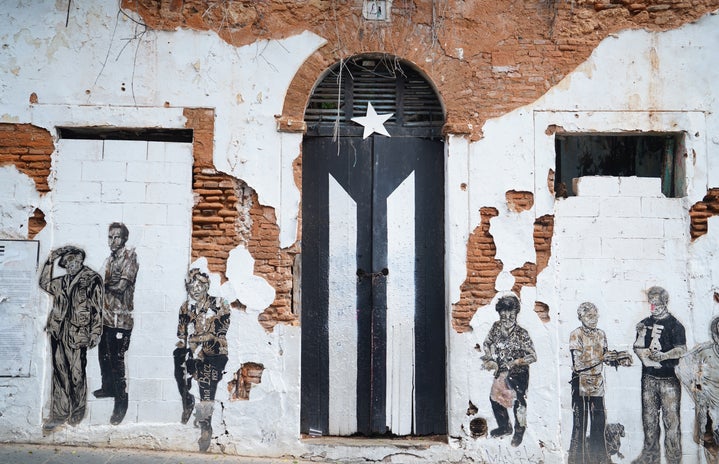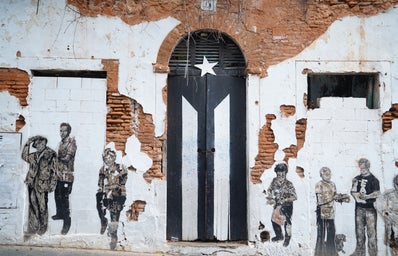I grew up bilingual, so my Spanish and English get mixed up easily. I was taking classes in English but speaking to everybody in Spanish because growing up my parents never knew English. Still, they had this idea that me and my siblings had to learn and be good at English because Puerto Rico is a US colony, so we were going to need it soon. Not only that, but having an accent has always been a double-edged sword. In Puerto Rico, people are always amazed by my English. Whereas, one time in New York, this stranger walked towards me and asked me for directions, and when I started speaking, he immediately interrupted me, and said that he didn’t know I wasn’t from there and to “forget it.” It also happens that I change my accent at my job. I try to pronounce words with clarity and talk slower so I don’t stumble on conversations. Customers always tell me my English accent is amazing compared to other people in Puerto Rico, but once I go to New York, my accent is “thick” and “bad.” Which one is it?
The fact that I live in a US colony makes it ten times worse. Tourists expect perfect English and one time I even had a man tell me, “Finally, not a dumb Puerto Rican that doesn’t know English.” On the contrary, if I speak too much English with Puerto Ricans, they say I’m too “americanized.” It’s a struggle to try and please everybody, so I don’t. It took me a while, and a lot of maturity, to understand that my English does not have to be perfect. Making mistakes is part of learning, I even make mistakes in Spanish; no, I constantly make mistakes in Spanish.
I’m a writer that mostly does their craft in English, even though my first language is Spanish, and I constantly feel guilty about it. People assume I write in Spanish and the look on their faces when I tell them I don’t is all I need to know there’s a disapproving undertone. For some reason, when I write in Spanish, I feel overly critical and self conscious, but in English I allow myself to make mistakes, because it’s my second language and I’m not expected to be outstanding. That’s the hardest part: the expectations. It’s either disappointment or unrealistic expectations, sort of like I owe them something and because I choose English, then it has to be perfect.
To anybody that has ever corrected me, if it was done out of good, thank you. How else would I learn? But if you correct me to feel some sort of power over me, I am going to stop you right there. I apologize, I’m sorry my multilingualism is such a bother and that you are so dangerously close-minded you somehow see me as a cultural threat. Also, theory goes, when switching between languages you can develop what are called higher cognitive processes, such as problem-solving, memory, and thought, creating a generally more flexible and agile mind. Researchers call this the bilingual advantage.
“Maintaining their ties to their origin is more important than any reason to change.”
One of the most fascinating and complex aspects of the human experience is language. Using language we’re able to make and communicate abstract ideas and words that refer to things that have no physical form. The world would be extremely boring if we all talked and expressed ourselves in the same way. Languages vary depending on who is speaking. People will let you know their origins just because of the dialect. For example, my Spanish is going to be different from the Spanish of a Spaniard. With accent, words, and the different expressions that we use, we can determine many things, like geography, social status, and more. It can also happen closer than we think and that’s exciting.
There is history in every word I mispronounce and every word I forget how to write, there is history in every word I say differently or every word I say half and half. I know you understand, so ignore the typos as many times as I make them. Having one or two words written incorrectly or even pronouncing some words differently does not take away from my intelligence or from myself.



